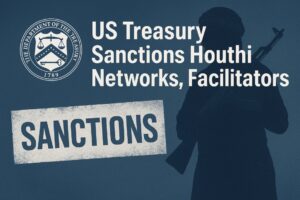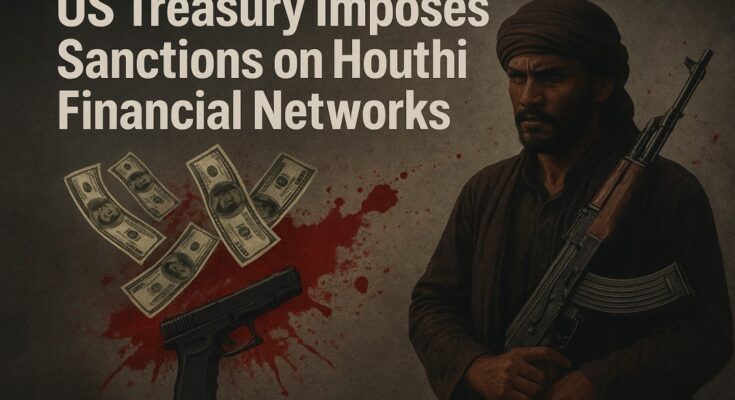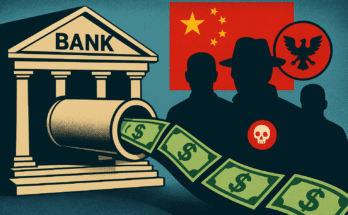🔎 US Treasury Cracks Down: Sanctions Target Houthi Networks & Global Facilitators
The U.S. Department of the Treasury has taken decisive action by imposing new sanctions on Houthi financial networks and facilitators that continue to fuel instability in the Middle East. This move underscores Washington’s broader commitment to disrupting terrorist financing channels, protecting global trade routes, and safeguarding U.S. national security interests.
🌍 Why It Matters
The Houthis, backed by Iran, have escalated attacks in the Red Sea, targeting commercial shipping and threatening one of the world’s most critical maritime corridors. These actions not only endanger regional stability but also disrupt global supply chains, affecting businesses and consumers worldwide.
By sanctioning key individuals and entities, the U.S. Treasury is cutting off access to the international financial system, making it harder for the Houthis to fund their operations. This demonstrates the government’s intent to apply financial pressure alongside military and diplomatic measures.
💰 Impact of Sanctions
- Financial Disruption: Targeted sanctions freeze assets under U.S. jurisdiction and block Americans from conducting business with the designated entities.
- Global Signal: The move sends a strong message to banks, shipping companies, and trading partners that due diligence and compliance are more important than ever.
- Support for Allies: These actions also align with international partners who are working collectively to counter illicit financing networks across the Gulf and beyond.
🛡️ Bigger Picture
Sanctions are not just punitive, they are strategic. By choking financial lifelines, the U.S. aims to:
- Reduce the Houthis’ ability to acquire weapons.
- Limit funding from external facilitators and backers.
- Encourage a shift toward diplomatic solutions in Yemen’s conflict.

✅ Key Takeaway
For financial institutions, compliance teams, and multinational businesses, this is a clear call to strengthen AML/CFT controls and remain vigilant about high-risk transactions tied to the Gulf region.


